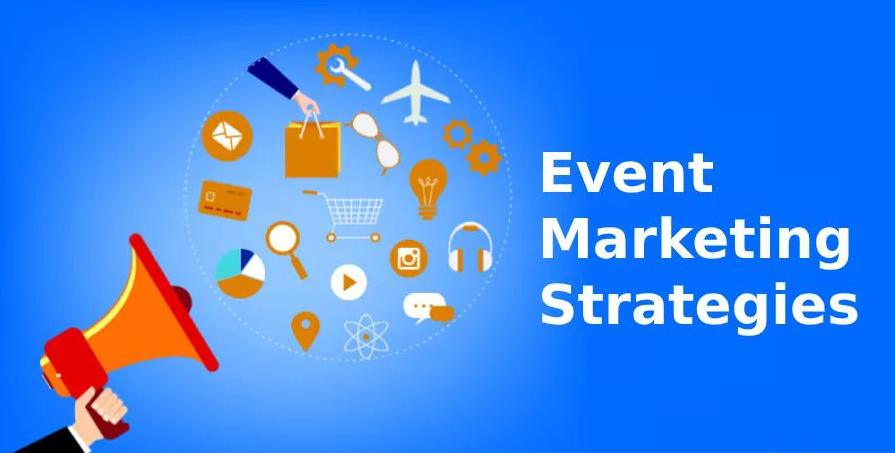As an event planner, you know that marketing is essential to the success of your events. But what are the best ways to market an event? And how can you make sure your efforts are successful?
To answer these questions, it’s vital first to understand what event marketing is and what it entails. Event marketing is the process of creating awareness and excitement for an event before, during, and after the event has taken place. It involves using a variety of channels to reach your target audience and create interest in your event.
Successful event marketing requires a lot of planning and effort, but it’s worth it in the end when you see all those people streaming into your venue! Follow these tips to get started:
Define Your Target Audience
The first step in any marketing campaign is defining your target audience. Who do you want to reach with your marketing efforts? What are their interests and needs? Once you know who you’re targeting, you can start to create content that appeals to them.
There are a few factors you should consider when defining your target audience for an event. These include:
- The Type of Event You’re Planning: What kind of event are you planning? Is it a business conference, a musical performance, or a wedding? The type of event you’re planning will help determine who your target audience should be.
- Your Event’s Location: Where is your event taking place? If it’s in a city, you’ll want to target people who live in or near that city. If it’s in a rural area, you’ll want to target people who live in or near that area.
- Your Event’s Date and Time: When is your event taking place? If it’s during the week, you’ll want to target people who are free during that time. If it’s on the weekend, you’ll want to target people who are free during that time.
- Your Event’s Budget: How much money do you have to spend on marketing? This will help determine which marketing channels you can afford to use.
- What You Want to Achieve: What are your goals for the event? Do you want to sell tickets, generate leads, or promote a product? Your goals will help determine your target audience and what type of content you should create.
Create a Marketing Plan
The next step is to create a comprehensive marketing plan. This should include:
- Your Goals: What do you want to achieve with your marketing campaign? Do you want to sell tickets, generate leads, or promote a product? Be specific and realistic in your goals so you can measure your success.
- Your Objectives: How will you achieve your goals? What steps need to be taken to reach your target audience and create interest in your event? Be sure to include a timeline for each objective so you can stay on track.
- Your Strategies: What methods will you use to reach your target audience? Will you use paid advertising, social media, email marketing, or word-of-mouth marketing? Choose the strategies that best fit your budget and goals.
- Your Budget: How much money do you have to spend on marketing? This will help determine which marketing channels you can afford to use.
- Your Calendar: When is your event taking place? Make sure you include key dates in your calendar so you can plan your marketing efforts accordingly.
- Your Team: Who will be responsible for executing each task? Assign specific roles and responsibilities to each member of your team, so everyone knows what needs to be done.
It’s essential to have a clear plan in place so you can track your progress and measure your success.
Use a Variety of Marketing Channels
There are many different ways to market an event, so it’s essential to use a mix of channels to reach your audience. Some of the most popular channels include:
- Email Marketing: Email is a great way to reach your target audience and promote your event. You can use email to send out invitations, announcements, and updates about your event. Just be sure to avoid spamming people’s inboxes!
- Social Media: Social media is a powerful tool that can help you reach a large number of people quickly. Use social media to create interest in your event and drive traffic to your website or ticketing page.
- Paid Advertising: Paid advertising, such as Google AdWords or Facebook Ads, can be a great way to reach your target audience. With paid advertising, you can specifically target the people who are most likely to be interested in your event.
- Content Marketing: Content marketing is a great way to generate interest in your event and build an audience. You can create blog posts, infographics, videos, or other types of content that promote your event. Just be sure to share your content on social media and other channels to get the most exposure.
It’s essential to use a mix of channels to reach your audience.
Promote Early and Often
The key to successful event marketing is to start promoting your event as early as possible. Create a buzz around your event by releasing information gradually and sending reminders closer to the date.
Here are some tips on how you can take to promote your event:
- Start Promoting Your Event at Least 3 Months in Advance: The sooner you start, the more time you’ll have to reach your target audience.
- Release Information Gradually: Don’t try to share everything at once. Instead, release information bit by bit so people will stay interested.
- Send Reminders Closer to the Date: As the event gets closer, send out reminders to ensure people don’t forget about it. You can use email, social media, or even text messages to send reminders.
It’s vital to start promoting your event early and often so you can reach your target audience and create interest in your event.
Measure Your Success
Finally, don’t forget to measure the success of your marketing efforts. This will help you fine-tune your strategies and ensure that you’re getting the most bang for your buck. Keep track of metrics such as ticket sales, website traffic, and social media engagement.
- Ticket Sales: How many tickets have been sold? This is a good metric to track if your goal is to sell out your event.
- Website Traffic: How much traffic is your event website getting? This metric can help you gauge interest in your event.
- Social Media Engagement: How much engagement are you getting on social media? This metric can help you see how successful your social media marketing efforts are.
It’s essential to measure the success of your marketing efforts so you can fine-tune your strategies.
By following these tips or simply using an event marketing platform, you’ll be well on your way to marketing your next event like a pro! Just remember to be creative, focus on your target audience, and measure your success along the way.




